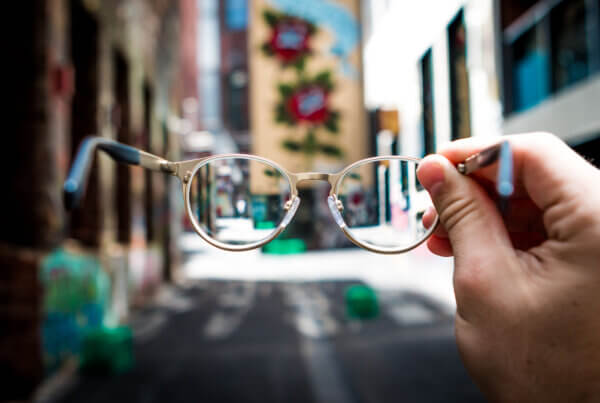Eye problems often develop with age, but there are certain lifestyle factors ad health conditions that can speed up the degeneration of your vision. If you are noticing a change in your eyesight, is there anything that can be done to slow or reverse your vision loss?
The truth is that specific eye problems are irreversible. Once the damage is done within the eye, there’s nothing that can be done to bring the vision back. But some conditions are reversible, especially if you are proactive with treatments in the earliest stages.
You don’t have to be consigned to poor eyesight just because you are getting older. Consider these natural interventions that can protect your eyes and reduce the risk of vision loss:
Screen Time
Staring at a computer or smartphone too much can have a noticeable impact on your vision. If you are noticing eye problems, then consider how many hours you are looking at a screen each day. Looking at the screen can result in eye fatigue, often leading to issues such as blurred vision and headaches.
We live in a digital world, which means that screens are an integral part of many people’s lives. It’s vital to be proactive in giving your eyes a break when you are spending time looking at the screen. Many people find that regular breaks, protective lenses, and proper ergonomics can have a noticeable impact on reducing eye fatigue and improving vision.
Vitamins and Diet
Researchers have identified specific nutrients that can contribute to good eye health: vitamins A, C, and E. These antioxidants offer anti-inflammatory benefits that might help by reducing the risk of certain eye diseases, such as macular degeneration.
While supplements are available, it’s often best to get these vitamins from real-food sources. These are some of the foods that contain vitamins A, C, and E – and potentially contribute to your eye health:
- Carrots
- Oranges
- Pumpkin
- Sweet potato
- Papaya
- Broccoli
- Spinach
- Red peppers
- Almonds
- Sunflower seeds
Eating these foods won’t immediately correct eye problems, but they can be an important part of the overall treatment plan.
Blood Sugar Management
If you’ve been diagnosed with diabetes or pre-diabetes, then it’s essential to understand how your blood sugar impacts your vision. High blood sugar leads to retinal damage, which can impair vision. Additionally, some people find that sudden changes in blood sugar levels can lead to temporary eye problems, such as blurred vision.
Balancing your blood sugar through lifestyle changes and medication use is critical for improving your eyesight. Not only can you reduce the damage to the blood vessels in the eye, but these steps are also useful for minimizing the impact of temporary vision disruptions.
Protective Eyewear
An unexpected eye injury could lead to permanent vision loss. Since many of these injuries are irreversible, it’s crucial to be proactive about preventing the damage before it occurs. Everyday activities like playing sports, hobbies, or household chores could cause hazardous conditions that affect your eyes. For example, wear goggles, safety glasses, helmets, or shields, depending on your activity.
Eye Problems? Talk to an Eye Care Expert
If you are noticing eye problems, then it’s essential to talk to an optometrist right away. Reach out to our team to book an appointment and learn about available options to improve your eyesight.






